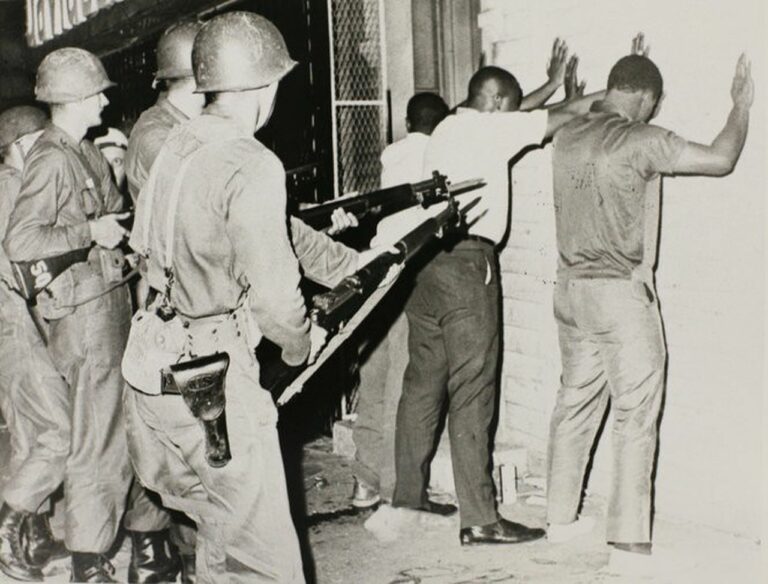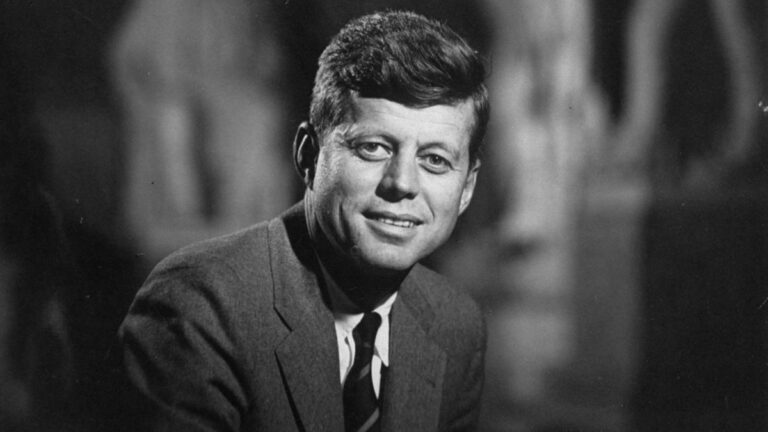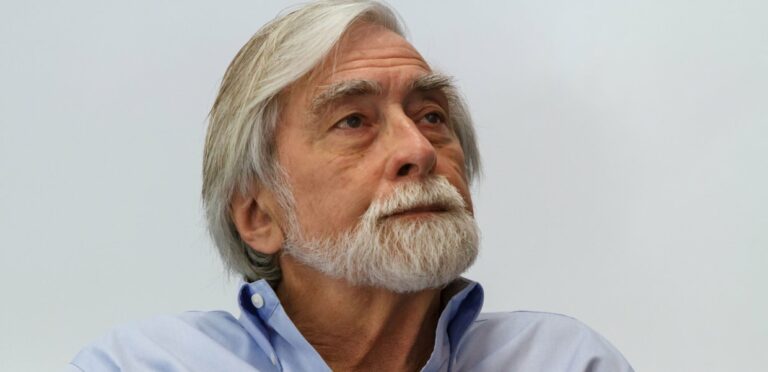Is Israel Unfairly Held to a Higher Standard? Norman Finkelstein on Reality Asserts Itself (pt 1/8)
This is an episode of Reality Asserts Itself, produced on December 24, 2014. Norman Finkelstein and Paul Jay discuss a full-page ad in the NYT that says Israel is condemned by liberals for human rights violations while it defends gay rights, and less is said about the persecution of gays by Iran, Hamas and ISIS.
PAUL JAY, SENIOR EDITOR, TRNN: Welcome to The Real News Network. This is Reality Asserts Itself, and I’m Paul Jay.
On Tuesday in The New York Times there was a full-page ad. The headline is “Hamas, ISIS and Iran kill gays like me”. And after detailing various examples of persecution of gays in these various places, it says:
“To those who scapegoat Israel while pretending to care about human rights yet remain silent about the oppression and violence Hamas, Iran and other Middle East countries inflict on the gay community:
“Shame on you. You are letting them murder us, literally.”
Now joining us on Reality Asserts Itself is a man who’s very well known for his writings and research and his scholarship on Israel and Palestine and the conflict there, Norman Finkelstein.
Thanks for joining us, Norman.
NORMAN FINKELSTEIN, POLITICAL SCIENTIST, ACTIVIST, AND AUTHOR: Thank you for having me.
JAY: So Norman’s one of the foremost scholars of Israeli-Palestinian conflict. He’s written about a dozen books on many topics, including U.S. foreign policy towards Israel, the use and abuse of the history of the Holocaust, and Gandhi’s philosophy of nonviolence. His controversial legacy as an academic was made into an award-winning documentary American Radical: The Trials of Norman Finkelstein. And I just found out that Norman’s actually never watched the film. And further into this interview I’ll ask him why. He’s also controversial among many activists for his unsparing criticism of the boycott, divestment, and sanctions movement. His latest book is Method and Madness: The Hidden Story of Israel’s Assaults on Gaza. And you’ll want to drop the cover of the book in there too.
So, Norman, what do you make of this ad? So the point of the ad, other than to be inflammatory–and let me say again, I should say–not again, but I should say who’s behind this ad. It’s paid for by StandWithUs, another organization called This World: The Values Network, and Rabbi Shmuley–America’s rabbi, it says here. And we looked a bit into it, and the funding for these guys seems to come partly from Sheldon Adelson and Susan Wexner, who has a retail marketing company, and some other American billionaires, I guess, and often do these full-page ads. And a full-page ad in The New York Times is, what, $75,000, $100,000 or something, very, very expensive.
Anyway, the point of the ad is that Israel is held up to a kind of unfair standard that people critique rights abuses in Israel at a level that they don’t, for example, with Iran. I mean, it’s hard to make the argument that ISIS isn’t getting critiqued, so, I mean, certainly it is, but I guess it’s talking about a lot of the people who do critique Israel don’t say much about some of the other countries. Do you think there’s any legitimacy to the critique, to the question they’re raising?
FINKELSTEIN: Well, there’s hardly a lack of criticism of Iran in the United States or the Western world, so we can set that aside.
JAY: No, but they’re talking about people that critique Israel, because a lot of the people that critique Iran defend Israel.
FINKELSTEIN: A lot of people who critique Iran defend Israel?
JAY: Yeah. Official American propaganda, government position, mainstream media, is not reluctant to critique human rights violations in Iran, but they don’t do it in Israel. They’re talking about people who critique Israel but are quiet about Iran or Hamas or something.
FINKELSTEIN: I’m not really sure who those people are. Most people who are critical of Israeli policy are also quite critical of aspects of Iranian policy. You don’t have to critique everything about Iran, for example. If you want to criticize Iran for acquiring nuclear weapons, then you ought to also be criticizing Israel for already having acquired nuclear weapons. If you want to criticize Iran for not having abided by the terms of the Non-Proliferation Treaty, the NPT, from 1968, then you’d have to criticize Israel for having never signed it.
Incidentally, just on that particular question, for what it’s worth, the major violator of the nuclear nonproliferation treaty is plainly not Iran. The major violator are the five–officially, the five nuclear power states, namely the U.S., the U.K., France, China, and Russia, because under Article 6 of the Non-Proliferation Treaty, they were supposed to disarm, they were supposed to rid themselves of the nuclear weapons. It’s now quite a long time since 1968, when the NPT was signed, and far from ridding themselves of nuclear weapons, if you take the case of the United States, the United States just–the plans of the Obama administration are to upgrade our nuclear arsenal, and investing about $1 billion–. No, no. What was the figure? Maybe it was $1 billion. I can’t recall right now, but a quite large sum to upgrade our nuclear weapons program, which is in clear violation of the NPT.
JAY: But what they’re raising–.
FINKELSTEIN: So, as a general principle, there are aspects of Iranian society that ought to be criticized. And while they ought to be criticized, my sense is they generally are, by people on the left, sometimes, I think, in fact, too harshly. So, for example, I thought it was pretty clear that Ahmadinejad had won that contested election, whereas most people on the left said that he had lost. I didn’t think there was significant evidence to support that.
JAY: But the issue they’re raising in the ad is that there’s some level of–they don’t use the word some level. Maybe I’m spinning. They are saying that there is a form of democracy in Israel that doesn’t exist in the places they mention, although I have to say it’s kind of interesting Saudi Arabia is not on their list. They only want to talk about places that are not American allies. And we know about the kind of collaboration that’s going on between Israel and the Saudis now, so they’re not on the list.
But that being said, the point they’re raising is, well, gays have rights in Israel. They don’t extend that in this ad further, but often they do. They said there’s real elections. In most of these places there’s not fair elections. Is there–and that Israel just gets critiqued at a level that doesn’t either take that into account or Israel’s held to a higher standard than these places. That’s their argument.
FINKELSTEIN: Mhm. Well, there are many things to say to that, and it’s hard, really, you know, it’s hard to figure exactly where to begin.
First of all, Israel has accumulated a quite ugly record if you even compare it to its neighbors. We’re talking about now, as we sit here, Israel has conducted, in the last six years, three major operations against the people of Gaza. And by any reckoning, the Israeli policy towards Gaza is just so abominably criminal that I don’t see how any circumstance can mitigate that fact. Yes, it’s true that gays are treated awfully in Gaza and Iran. Okay, fine. And in Saudi Arabia. But how does that mitigate the fact that Israel has been launching these operations against, basically, a defenseless and impoverished population in an almost–at this point you would have to describe it as a sadistic fashion.
I recently read a new book by a Frenchman–can’t remember his name right now [Jean-Pierre Filiu]. It’s called Gaza: A History. And it’s not a great book. It’s basically a political history of Gaza. And I myself was astonished at just how many massacres, how many bloodlettings those people have endured at the hands of the Israelis. Probably in the last ten years, let’s say in the last 14 years, there’ve been, I would guess, at least ten major, quote-unquote, operations. An operation is just a euphemism for a massacre or a slaughter. There have been ten major operations against the people in Gaza, with all these crazy names–Operation Summer Rains, Operation Fall This, Winter That. No, I’m serious. It’s not a joke. I don’t see how any kind of comparative perspective is going to mitigate the magnitude of the Israeli criminality.
But let’s just take another example that’s currently in the news. So I was reading the torture report that came out–I’ve not completed them; only about a third of the way through. And the torture report, it focuses approximately on 119 cases. That’s what they say, the 119 cases. And it describes the repertoire of tortures. Most of the torturers are pretty much what Israel inflicts on Palestinian detainees. The loud noise, the sleep deprivation, forcing people to hang in, suspended from the ceiling, putting them in what the Israelis call the refrigerator here. They call it, like, a box, a coffin. No, the Israelis also call it the coffin.
There were a few things in the torture report which Israel, to my knowledge, hasn’t done. So, for example, they didn’t strip people naked, which was pretty common as far as one could tell, in the 119 cases. The Israelis didn’t practice waterboarding, to the best of my knowledge. And the waterboarding was pretty shocking. In the case of, for example, Khalid Sheikh Mohammed, the report said he was waterboarded at least 183 times, which is mind-boggling.
But in general, in general, the torturers were quite close to each other. I’m not saying the Americans learned it from the Israelis, but that’s pretty close.
Why do I mention it? Because in this particular report we’re dealing with about 119 cases. In the case of the Israelis, these torturers, the same repertoire of torturers, Human Rights Watch estimated that between 1987 and 1993, during the period of the First Intifada, about, they estimate, 20-30,000 Palestinian detainees had been tortured or ill treated by the Israelis. So we’re talking about a completely different level of magnitude when we’re talking about Israel and the United States. So the U.S. torture report elicits or evokes such gasps of shock at what the U.S. did. Well, then, compare it with the Israeli–basically the same torturers, with some differences, but we’re talking about an order of magnitude, 119 verses 20-30,000.
JAY: Go back to the ad. Why do you think they feel the need to take out a full-page ad right now like this?
FINKELSTEIN: Well, I think that Israel’s stock has dropped precipitously in the West in general, in particular in Europe. But it’s also having–it’s also suffering in the United States after three successive massacres, as I said. The Exodus, the Leon Uris Exodus image of Israel has now worn very thin. It’s threadbare.
And there is a lot of disaffection, not least among American Jews. The New York Times, its core audience is Upper West Side, Upper East Side American Jews. You can tell by the articles that are featured, but also you can tell by the most emailed articles. It’s always any Jewish article. It can be about blintzes in Brazil and it’ll be number-one. And you can tell who its reader base is. So when an ad like that is taken out in The Times, it’s also targeting American Jews, because there’s a certain amount of discomfort, disaffection, alienation setting in among American Jews with the way Israel carries on.
Of course, there are limits. So if Israel’s physical survival were actually threatened, then people would rally around their landsmen.
But short of that, American Jews, they have a lot of trouble with someone like Netanyahu. He looks like somebody from the Christian right in the United States, the way he talks, the way he acts, obnoxious, arrogant, racist. There’s no doubt in my mind that Netanyahu would never carry on that way, as he does with Obama, were Bush in power, not just because of Bush’s politics were more sympathetic to Israel, but because Netanyahu’s just a racist. He carries on that way with a black president.
JAY: You talk about the outrage here, about the 119 cases. Why do you think there’s been, as far as I know, like, next to no outrage in Israel about so many more cases?
FINKELSTEIN: First of all, the Israelis, they truly do believe theirs is the most moral army in the world. There’s not really been a dent in that attitude. So they don’t really believe that these sorts of things are done by their army, though, of course, there’s a lot of–there’s a lot of denial, there’s a lot of self-deception, because you have to remember Israel is a citizen army. So during the First Intifada there was a mass mobilization among the Palestinians, and then there had to be a mass mobilization among Israelis in order to counter it. And so they’ve called up all of their reserves. If you were there back then–and I was–you had people 60, 65 years old wearing fatigues. So the torture and all of that brutality, it was being carried out by the Israelis. So at the one hand, the citizens are the actual executioners of policy. It’s a citizen army. On the other hand, a lot of them still believe Israel doesn’t do those things.
Now, how that can be, well, we all know human beings have a limitless capacity for self-deception. So they can both do it and say it’s not–they themselves can be the executioners of the policy and at the same time say it doesn’t happen.
JAY: You–and we’re going to get more into this as we go through the series–you’ve been more than ostracized from most of the academic community in the United States, but certainly from most of the Jewish community–certainly not all. Are you feeling, though, a change in amongst Jewish North Americans in their attitude towards Israel?
FINKELSTEIN: Oh, yeah, there’s no question American Jewish attitudes have changed substantially. Bear in mind I’m talking now about a fairly significant period of time. I first got involved in 1982, the day Israel invaded Lebanon, on June 6, I guess it was, 1982. So we’re now talking about more than three decades. So when I say there’s been a change in attitude, it’s over a fairly substantial period of time, three decades. Back then you had to argue to prove the Palestinians physically existed.
In 1984, the big bestseller was Joan Peters’s From Time Immemorial, the main thesis of which was Palestine was empty when the Jews came, the Jews made the desert bloom, and then all these Arabs from neighboring states surreptitiously entered Palestine and pretended to be indigenous to the region. I mean, that was the level of discussion. And then those who acknowledged that Palestinians physically existed, then they said, okay, their homeland is in Jordan. That was the Jordan is Palestine thing. So we’re so far past all of–.
JAY: And it was actually–it was your–what, your PhD thesis that kind of took that [crosstalk]
FINKELSTEIN: No, that’s a bit of a misapprehension.
JAY: Well, let me say what the misapprehension was, and then tell me it’s a–what I’ve been reading is that your PhD thesis was essentially a big–a critique of Peterson’s [sic] book.
FINKELSTEIN: No. No. My PhD thesis was on the theory of Zionism. The Peters book came along just as I was completing the research phase of my thesis. And I stumbled on the book in–it was called back then Harper & Row bookstore. And the blurbs were glowing. They said it would change our understanding, it would completely change our understanding of the conflict. So, obviously, it piqued my interest. And it of course worried me, because if what she were saying were true, it would mean that I was hoodwinked. And I had been–not hoodwinked; I had been fooled as a youth, no doubt about that. I was a Maoist, very, I would guess you would say, a fanatical Maoist, and after Mao Zedong passed away and then the Gang of Four was overthrown, those were–those events devastated me, because I realized I had been a fool and I had too easily dismissed criticism as being–back then we used to say it was all bourgeois or petty bourgeois, anyone who criticized China under Mao. And it was not a good feeling that I was a fool.
JAY: And this Peters book would have said that the narrative that this is the homeland of Palestinians was wrong. That was the thesis of the book.
FINKELSTEIN: Yeah. Mhm.
JAY: But they were essentially Arab immigrants that had come to the area. So Jews had as much claim on it or a more–
FINKELSTEIN: More claim.
JAY: –biblical claim.
FINKELSTEIN: Yeah.
JAY: But you then wrote a book critiquing the Peters book, right?
FINKELSTEIN: I didn’t write a book. What I did was I–as I said, I was pretty shook up by the claims of the book, and I was determined I wasn’t going to be made a fool of again. And so I sat down and applied myself to seeing whether or not what she was saying was true.
And there were two aspects to it, one a fairly technical, arcane demographic study, and then there was the historical research. I plunged into the demographic study. And I was working, at that point, in a afterschool program in a pretty tough neighborhood in New York. And I would come home every night. It was before computers, really. And I would sit down on my bed, lie down on my bed. And I was doing all the calculations, trying to figure out these numbers, checking in the back of the book. There were charts in the back of the book, and then the text and the chapters, checking, checking, checking, checking, checking. And then one night–it was, I guess, around 1 a.m.–I got the chills in my spine and I was thunderstruck. I discovered that the key number was a fake. And I was really–it was an–not epiphanal moment, but it was certainly a–.
JAY: And what was the fake?
FINKELSTEIN: Oh, it would be impossible to explain. It was a technical study. But the study had been verified by this guy named Philip Hauser, who was the head of population studies at the University of Chicago. And he had a letter appended to the charts at the back confirming her findings. So everybody just assumed it’s got to be correct.
And so I remember jumping out of my bed and pacing up and down. I lived in a small kind of Raskolnikov type studio in Washington Heights, and I said, I did it, I did it, I did it. And I didn’t know who to call at that hour, but I ended up calling my mother, and I said, “Mom, I did it, I did, I did it.” “I’m very happy for you. What did you do?” I said, “I discovered a fraud.”
And I was quite good friends at that point in life with–not friends; I was, let’s just say, a disciple or protege of Paul Sweezy, the eminent Marxist, American Marxist economist. And he said to me at one point, he says, well, discovering a fraud is every scholar’s eureka. And that was my eureka moment.
But it was also a relief, because I was once more secure in my foundations that the cause to which I had now devoted myself, dedicated myself, invested myself, that the cause was on solid intellectual foundations [crosstalk]
JAY: Okay. We’re going to pick this up in the next part of our series of interviews. In fact, we’ve kind of started getting into the biographical story. And we’re going to go back and kind of start at the beginning of the biographical story.
Please join us for the continuation of our interview with Norman Finkelstein on Reality Asserts Itself on The Real News Network.
“Norman Gary Finkelstein is an American political scientist, activist, former professor, and author. His primary fields of research are the Israeli–Palestinian conflict and the politics of the Holocaust. He is a graduate of Binghamton University and received his Ph.D. in political science at Princeton University.”






